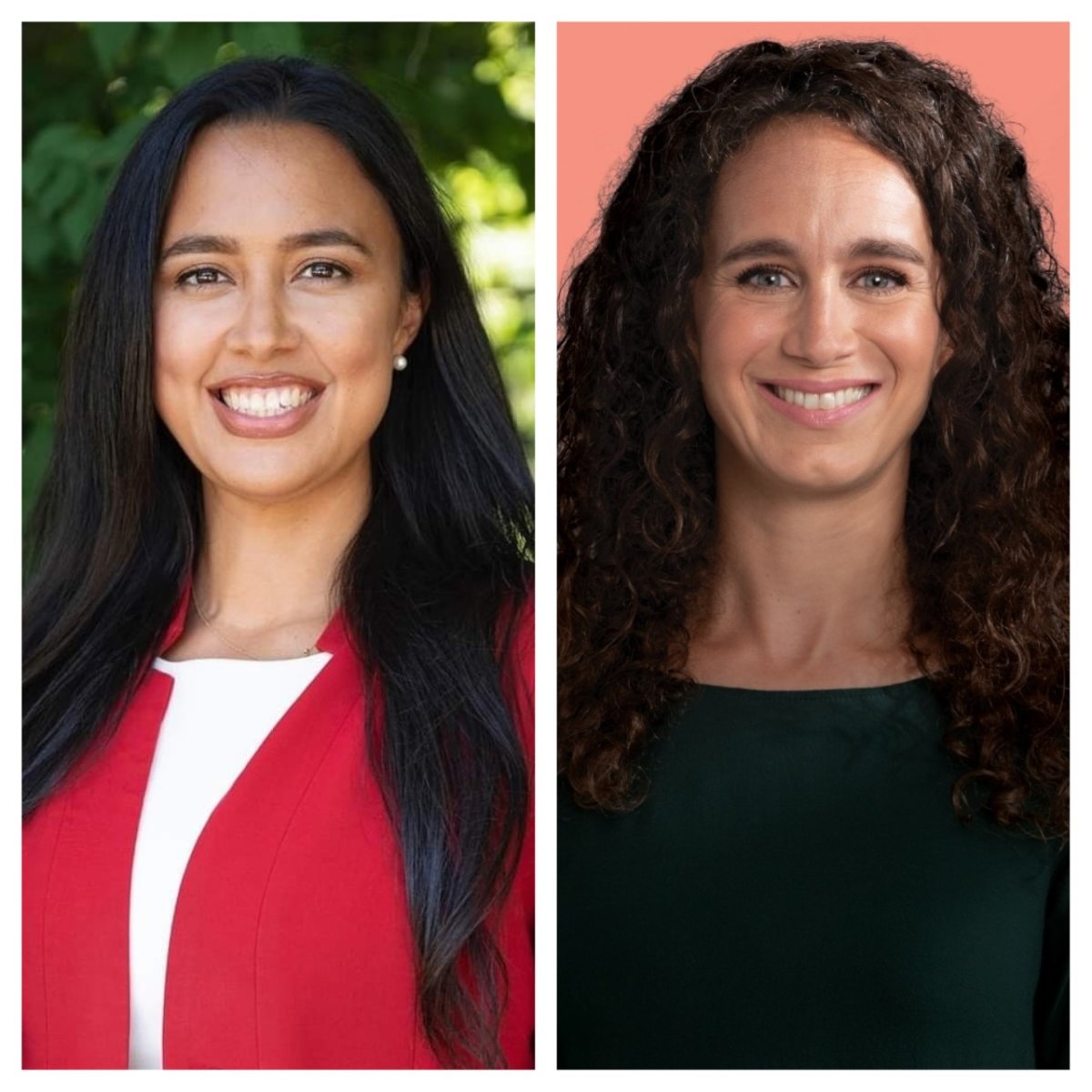As the city of Montreal elected its most diverse city council in history, two women of Latin-American origins have clinched top jobs within the city’s political parties and functions.

Josefina Blanco, originally from Argentina, has been elected city councillor for the Saint-Édouard district in the Rosemont–La Petite-Patrie borough under the Projet Montréal banner.
She was also appointed a member of the executive committee in charge of diversity, social inclusion, homelessness and universal accessibility.
Alba Stella Zúñiga Ramos, of Colombian origins, ran for Ensemble Montréal and was elected city councillor in the Louis-Riel district of the Mercier–Hochelaga-Maisonneuve borough.
She was also appointed the party’s deputy leader and spokesperson on the files of active transportation, Bixi (the city’s bike share program), self-service vehicles, youth and judicial affairs.
Alba Stella Zúñiga Ramos
When Zúñiga Ramos was a teenager, she had to make a life-altering decision: to head back with her family to Colombia after her father finished his PhD studies in Canada or to stay and make it on her own.
She was 17 when she decided to leave everything she’d known behind and live alone in a foreign country where she didn’t speak the language.
“The plan was to stay for six months, learn French and head back but I got involved in a lot of volunteer work, learned French and it gave me a window to a completely different world,” Zúñiga Ramos said.
Since then, Zúñiga Ramos supported herself entirely and became a trilingual lawyer, graduating from McGill University and the University of Ottawa.
But in spite of not having family around, she says she was never really alone.
- Quebec premier calls on Bloc Québécois to help topple Trudeau government
- NDP to join Bloc in backing Liberals against non-confidence vote
- Via Rail CEO calls 10-hour train delay ‘unacceptable,’ says new evacuation plan in place
- Ethics commissioner will not investigate Boissonnault over ‘Randy’ texts, says the matter is closed
“I’m grateful for all the Montrealers who were there for me. Even before when I was going through my schooling and different immigration processes, I always had people from here supporting me,” she said.
“I’m so grateful. I’m working for those Montrealers.”
Now an elected official, Zúñiga Ramos wants to give back and wants to use her experience as an immigrant to help the tens of thousands of people who choose to settle in Montreal every year.
“I know how hard it is to get a job; I’ve faced racism and discrimination. Without claiming I understand every experience of every Montrealer, I can say I’m sensitive to those experiences,” she said.
“I want to bring some light into a discussion that needs to be had.”
After seven years of not being able to see her family, Zúñiga Ramos’ mother was able to visit her at a crucial time in her life.
“I campaigned with my mom who came from Colombia and did door-to-door with me,” the Louis-Riel councillor said.

Get breaking National news
“She did a PhD in gender studies. For me, it was a very positive move as a feminist to see my mom supporting me, different generations of Latino women working together, and I think people appreciated it.”
Some of those people were younger Montrealers.
“A lot of girls told me, ‘I’ve never seen a politician that looks like you or an immigrant’,” Zúñiga Ramos said.
“That was important to me, that the younger generations are able to aspire to occupy positions of power within the city and they see it’s doable, it’s possible — it’s not just a dream, it’s a reality.”
The lawyer-turned-politician says she wants to normalize diversity in politics. And her appointment as a deputy leader of her party could be interpreted as a sign it’s the direction Ensemble Montreal is taking and a sign she’s seen as key component of the future of the party.
“It’s an honour to be seen like that,” she said, “We’re not just there because we are visible minorities but professional people who can actually deliver and more than just a token person for a picture.
“We are here to bring change and represent our communities, but also Montreal in general.”
Josefina Blanco
For some, politics can be a daunting affair, but Josefina Blanco brims with enthusiasm when speaking about her job as a city councillor and now member of Montreal’s executive committee.
“I’m really happy, really excited about the new challenges, there’s so many new things to learn,” Blanco said.
But she says not everyone back in her native country of Argentina shared her excitement when she announced she would go into politics for the first time in 2017, when she ran and was elected as borough councillor in Canada’s most densely populated borough, Le Plateau-Mont-Royal.
“For sure, there were two kinds of reactions: some said, ‘We knew it, you have the personality,’ and they were really happy. On the other hand, others were like, ‘Are you sure, politics?’ Because they were thinking about the references they have,” she said.
Blanco has become a political reference of her own, one that brings a much brighter tone and outlook than the ones her relatives in Latin America are familiar with.
For the past four years, Blanco has been working to increase Latin-American immigrants’ visibility.
She helped the city recognize October as Latin-American Heritage month.
In her former role as borough councillor, she handled the files of social development and diversity.
“For me, it makes sense I find myself in charge of these files in the executive committee,” she says.
Blanco is a graduate of the Universidad Complutense de Madrid in social work studies.
When she first came to the city, she spoke little French but found support from community organizations in the Plateau, where she eventually volunteered to give back.
Blanco is not the only Latin-American in her political party, Projet Montreal. And she is proud of that.
In the borough of Verdun, Enrique Machado of Venezuelan origins was elected borough councillor as well as Kaïla Amaya-Munro, who has Colombian roots.
“This is great. Latin-Americans are being represented in different areas in the city,” Blanco said.
“This shows that we’re everywhere and we have all different profiles, I’m really proud and really happy.”
Blanco believes having diversity in the city’s leadership is a “win-win” for Montrealers.
“When diversity comes to power and represents the population, we make public policies that reflect the real needs of people.”
Blanco was born in Argentina, studied in Madrid, then in Amsterdam, before moving with her Quebecois husband to Montreal.
She believes her personal background and experiences are assets that she brings to the municipal table and encourages other immigrant women who may doubt themselves to take on bigger roles.
“It’s normal that an immigrant, a woman when we ask ourselves about big responsibilities that we wonder ‘me? Am I legitimate to do it?”
For Blanco, the answer is always yes.




















Comments